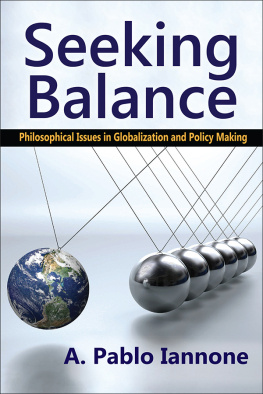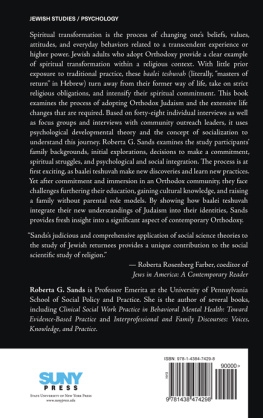Network Society
Roberta Iannone
Department of Political Sciences of Sapienza University of Rome
Emanuela Ferreri
Department of Communication and Social Research of Sapienza University of Rome
Maria Cristina Marchetti
Department of Political Sciences of Sapienza University of Rome
Laura Mariottini
Department of Political Sciences of Sapienza University of Rome
Manuela Cipri
Faculty of Political Science, Sociology and Communication, Sapienza University of Rome
Vernon Series inSociology
Copyright 2016 Vernon Press, an imprint of Vernon Art and Ascience Inc, on behalf of the author.
All rights reserved. No part of this publication may be reproduced, stored in a retrieval system, or transmitted in any form or by any means, electronic, mechanical, photocopying, recording, or otherwise, without the prior permission of Vernon Art and Ascience Inc.
www.vernonpress.com
In the Americas: Vernon Press 1000 N West Street, Suite 1200, Wilmington, Delaware 19801 United States | In the rest of the world: Vernon Press C/Sancti Espiritu 17, Malaga, 29006 Spain |
Vernon Series in Sociology
Library of Congress Control Number: 2016910433
ISBN: 978-1-62273-136-7
Product and company names mentioned in this work are the trademarks of their respe c tive owners. While every care has been taken in preparing this work, neither the authors nor Vernon Art and Science Inc. may be held responsible for any loss or damage caused or alleged to be caused directly or indirectly by the information contained in it.
Table of Contents
Preface
Paolo de Nardis
What is the network society?
Roberta Iannone provides a complete and articulated defin i tion of the concept of network that renders, in a clear and effective way, the descriptive content of the analysis, giving us at the same time a key to depict the contemporaneity . This perspective is enlarged and enriched by the interesting co n tributions of Cristina Marchetti, Laura Mariottini, Emanuele Ferreri and Manuela Cipr .
This approach constitutes a way to avoid the traps inherent in an ontological method and to base the analysis of this re l evant theme starting from an assumption: the Network can be realistically depicted as an element able to shape and d e fine the contemporaneity .
Since last century 70s, I have always considered very inte r esting the attainment of this conception. It undoubtedly originates from functionalism , but overcomes it by including a strong axiological element based on reciprocity, collabor a tion and trust.
From a modern epistemological point of view, in my opi n ion, it is quite important to try to avoid the ontological a p proach in order to consider the concept of network society merely as a concept: an instrument to explain reality, rather than an instrument pretending to objectify an analytical ca t egory presenting it as the exact reality.
So we can say the network society is a po w erful instrument to analyze contemporaneity as demonstrated by the inte r esting works of the present research , but without the pr e tension to exhaust all the ranges of the possible interpret a tions of reality. This should be read by making use of a large set of concepts, none of which really exclusive. All instr u ments then must be checked according to the principles of verifiability, replicabi l ity and publicity of the results.
That said, the heuristic fecundity of the proposed concept could not be denied because deeply investigated and analyt i cally founded on a large number of soci o logical literature on the subject, produced during the last quarter of a century both in Italy and abroad. The main contribution of this literature led to a fascinating and important idea: contemporary wes t ern societies, developing along the late segment of modernity, do not govern the m selves according to the traditional scheme of the state-civil society (of political and business world) and according the mono-regulative top-down model, but they o r ganize the m selves according to a horizontal network .
Under this perspective, the horizontal self-organization of the societies plays a role of substitution and supplement a tion of public powers, whenever they are weak or completely missing in their essential functions of distribution, regul a tion and control.
This is a conception that gave birth to the neo-corporative conception of the social sphere and that redefines it in a neo-functionalist and neo-morphological way. The old social pyr a mid squeezes and molding a horizontal-reticular society, with the consequent fall of old schemes and hierarchies.
The theoretical sources of this neo-pluralistic morphology of the social sphere, from both an ideological and cultural point of view, are part of the present research that, in identifying the s o ciological conscience implicit in this interpretation of reality, aims at redefining a snapshot of social life, on the grounds of the major cultural currents. Yet, the latter does not seem always conformed to such a geometrical approach, with quite clear returns to the past models, falling in the mi s leading vision of the so called autumn of the State and of its regulative function.
If we refer to the pluralistic approach in sociology , we find one of the most important author, Gurvitch . In his work, the organization fa c tor of a social group has a fundamental role for the capacity of generating norms. Forerunners of this a p proach could be philosophers and law theorists, like Duguit , Van Gierke , Hariou and others. Moreover, along the lines of a sociological research on education, considered in conne c tion with the organization factor, we can examine some i m portant positions by Sell z nick , a sociologist of law, who came from the sociology of organization. Here, it is possible to re c ognize the same pluralistic approach to the study the late-modern society, closely related to an explicit need to explain how complex organizations can be a vehicle to education and of expectations on justice and law.
In this case, the endo-organizative perspective makes room to a pluralism defined according to the principles of justice of an industrial kind that amounts to the reality of a complex organization.
Hence, reshaping the old vision of the classic pluralism with this new conceptual model, considering pluralism as a system, it seems we can affirm that beyond the absorption of values and norms coming from political power, it is at work the same mechanism of absorption emanating from the ce n ters of economic and social power and from the media.
In this perspective, pluralism meets fun c tionalism , giving birth to a way of modeling characterized by a functionalist neo-morphology of the social sphere.
On the light of these contributions and of the neo-pluralistic framework developed by these authors, in this research the aim is to go further, by applying a relational lens (rather than a proper paradigm ) to the study of the network . The pluralistic fulcrum of the sociology of law and organization needs to be reconsidered and integrated, rather than contradicted, accor d ing to the most recent theoretical achievements on the relatio n al sociology. In this sense, the aim of this work is to investigate the networks and their properties in terms of social capital and governance, with the goal to reconstruct the ideal conscience of the new reticular society in its shades and lights.















